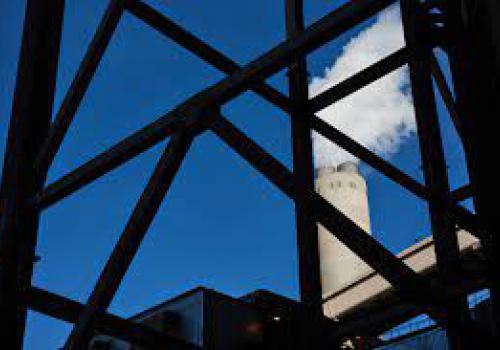South African businesses have called for the country's carbon tax to be increased at a slower pace to take account of the challenges it faces as a developing economy, including low growth, weak energy security and high unemployment. Under a draft tax bill, the finance ministry has proposed increases in the carbon tax rate for the 2023-25 tax periods by a minimum of $1/t CO2 equivalent (CO2e), rising gradually to $20/t CO2e in 2026 and at least to $30/tCO2e in 2030. The bill has prompted a joint position statement from a group of business organisations in South Africa along with a series of recommendations for the government to consider. Although a carefully designed carbon price is key to achieving just and equitable energy transition, as well as realising South Africa's international climate commitments, the country's economy cannot withstand such a steep increase over a short period of time, especially not given its slow recovery from Covid-19, the group warns. The business sector recognises that the carbon tax has to be increased to protect South Africa against border tax adjustments and to ensure it can attract investment to enable a just energy transition. But it "cannot afford the proposed tax rates and simultaneously mobilise the capital needed to mitigate greenhouse gas emissions and invest in new low carbon products and services", the group said.
It proposes that South Africa's annual carbon tax increase should continue to be based on the prevailing consumer price index (CPI) plus 2pc until at least 2030. A higher carbon price should only be considered post-2035, it said. The group expressed concern that the draft tax bill does not provide for free allowances to be extended to shield hard-to-abate sectors — such as the mining, petrochemical, steel and cement industries — from the carbon tax's detrimental impacts. The group recommends that free allowances should be retained until 2030, and where a phase-out is planned, this should be clearly articulated. In addition, supporting measures to encourage decarbonisation — such as subsidies, indirect compensation and funding for innovation, technology, research and development — should be introduced, according to the group. It also contends that the pass-through of the carbon tax to electricity consumers and through other input costs, such as construction material in the form of steel and cement, effectively results in double taxation and a financial burden of over 24bn rand ($1.4bn) from January 2023 to March 2025. It proposes a detailed bottom-up analysis of the implications for trade vulnerable sectors and recommends border tax adjustments are considered. "We are sharing these recommendations to avoid unintended and adverse consequences to an already fragile economy," the group said.
The group includes the Energy Council of South Africa, Minerals Council South Africa, Business Leadership South Africa, Business Unity South Africa, the South African Petroleum Industry Association and Energy Intensive Users Group. The Energy Council of South Africa was launched in November to serve as the collective voice of the energy sector and to promote the sustainable supply and use of energy for inclusive economic growth. The council is being led by chief executives of mining firms Anglo American and Exxaro, integrated chemicals and energy firm Sasol, France's TotalEnergies, the state-owned Central Energy Fund and utility Eskom, the Industrial Development Corporation and automobile manufacturing body Naamsa. The Department of Mineral Resources and Energy is a major stakeholder. The council recently appointed consultancy firm PwC's energy lead, James Mackay, as its first chief executive with effect from October 17.
